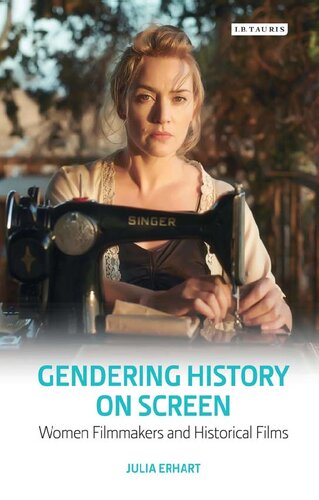Product desciption
Gendering History On Screen Women Filmmakers And Historical Films Julia Erhart by Julia Erhart 9781784535285, 9781786724267, 9781786734266, 1784535281, 178672426X, 1786734265 instant download after payment.
In movies about landmark historical events such as wars, occupations, or migrations or historically important personalities, there is an unspoken set of rules for how gender ought to be expressed. Often condemned by critics for being excessively emotional or pathetic, films by female directors featuring female protagonists may be popular with audiences but judged incapable of expressing ‘real’ history. Audiences learn more about the past from movies than from any other form of entertainment, and historical and heritage cinemas now comprise a burgeoning scholarly field. Yet to date there has not been a book-length analysis of female film directors’ innovations in films about the historical past. With and without critical recognition, women are making important stories about the past and bringing new representations of agency and activism to the screen, often construed in ways that mobilise the past for the present, and always filtered through the lens of contemporary feminisms. Julia Erhart’s new book situates women filmmakers’ work within a context of other women directors from France, Denmark, Iran, Australia, the UK, the United States, and Spain and draws connections between their representational strategies and their concerns with visioning the past within the prism of the present. Written in an approachable yet theoretically informed prose, Erhart compellingly explores how foundational historiographic concepts like valour, memory, and resistance are re-envisioned within uniquely revised sub-genres that include biopics, historical documentaries, Holocaust movies, and films about the ‘War on Terror’. Gendering History on Screen demonstrates how directors shape audiences’ sense of the past, contour globally-relevant themes and narratives to suit female characters, and map a critique of national policies and institutions on to contemporary feminisms. Gendering History will be invaluable to students and scholars of historical film and women’s cinema.
Review
`Drawing on insightful readings of a diverse array of films including Monster, Nadar, La rafle/The Round Up and Zero Dark Thirty, Erhart has crafted an eminently readable study of how female directors reshape historical film to make room for women's perspectives' - Julianne Pidduck, Associate Professor, Department of Communication, the University of Montreal and author of Contemporary Costume Film
About the Author
Julia Erhart is associate professor in the School of Humanities and Creative Arts at Flinders University. She researches in the areas of contemporary women filmmakers and feminist and LGBT representations in film and television and is the recipient of a grant from the Australian Academy of the Humanities (2016), a Citation for Outstanding Contribution to Student Learning from the Australian Office for Learning and Teaching (2014), and a fellowship from Fulbright (2000).


